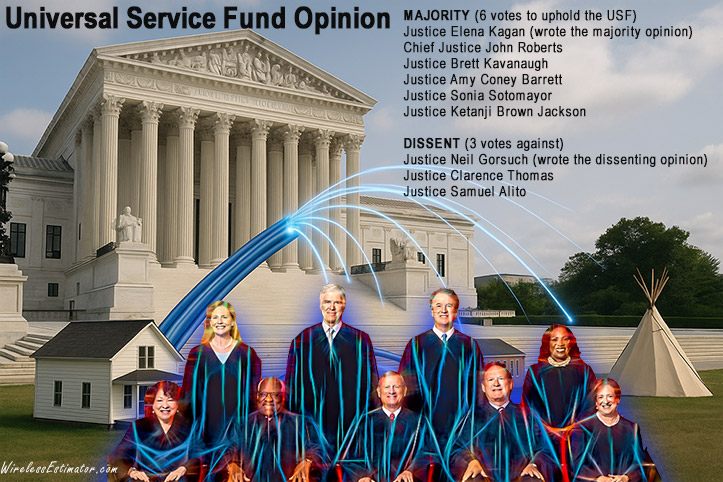
The Universal Service Fund benefits rural communities, low-income households, schools, libraries, rural health care providers, and Native American communities.
Today, the U.S. Supreme Court ruled 6–3 to uphold the constitutionality of the Universal Service Fund (USF)—a multibillion-dollar initiative that subsidizes internet and phone access for rural communities, schools, libraries, low-income households, tribal lands, and rural healthcare providers.
The Court rejected claims that Congress had improperly delegated tax-setting authority to the Federal Communications Commission (FCC) and allowed a private nonprofit, USAC (Universal Service Administrative Company), to administer it. In the majority opinion, Justice Elena Kagan emphasized that Congress provided sufficient guidance, and the FCC retained ultimate control, clearing any constitutional hurdles.
This decision breaks from recent rulings that have curtailed federal agency power, and it narrows the reach of the nondelegation doctrine by affirming the USF’s structure. Conservative challengers, including Consumers’ Research, argued that allowing the FCC to set fees through a non-profit administrator amounted to an unconstitutional tax The dissent, led by Justice Neil Gorsuch, warned that this grants an agency quasi-taxation powers—stepping into lawmakers’ territory.
Supporters, such as the Rural Broadband Association, praised the decision, calling USF critical for sustaining rural networks and keeping service rates affordable. By securing USF’s future, the ruling ensures continued funding for programs such as E-Rate, Lifeline, Connect America, and Rural Health Care, thereby preserving a key tool in closing the digital divide.
With its legal foundation appearing to be solidified, the USF remains a cornerstone of telecom equity. But stakeholders now face pressing questions: Should the funding model be reformed, given its reliance on declining interstate telecom revenue? Can USF’s architecture adapt to new BEAD-derived broadband funding and emerging satellite and fixed-wireless alternatives? The Court’s acknowledgement of flexibility in universal service policy suggests Congress and the FCC have room to evolve the program without compromising legality.
















